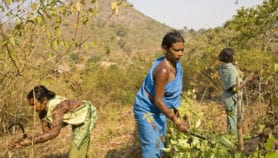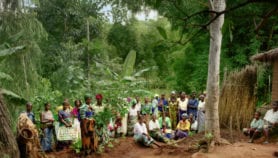Send to a friend
The details you provide on this page will not be used to send unsolicited email, and will not be sold to a 3rd party. See privacy policy.
Documenting traditional knowledge can protect it from being patented and commercially exploited by showing that the knowledge is not novel. But patents relating to medical and pharmaceutical properties of a plant’s active ingredients, for instance, can be difficult to challenge through such documentation.
In this article, Rajesh Kochhar, director of India’s National Institute of Science, Technology and Development Studies, says this ‘molecularisation’ of traditional knowledge should be re-examined in terms of the concept of non-obvious or inventive steps. He believes that if traditional knowledge is the stimulus leading to discoveries in laboratories, the mere use of modern scientific approaches to reveal a plant’s "chemical secrets" should not represent a novel invention.
Kochhar adds that developing nations need a ‘joint ethical standard’ on traditional knowledge, and that if such knowledge is exploited commercially, royalties should be directed towards the needs of the world’s poor.













